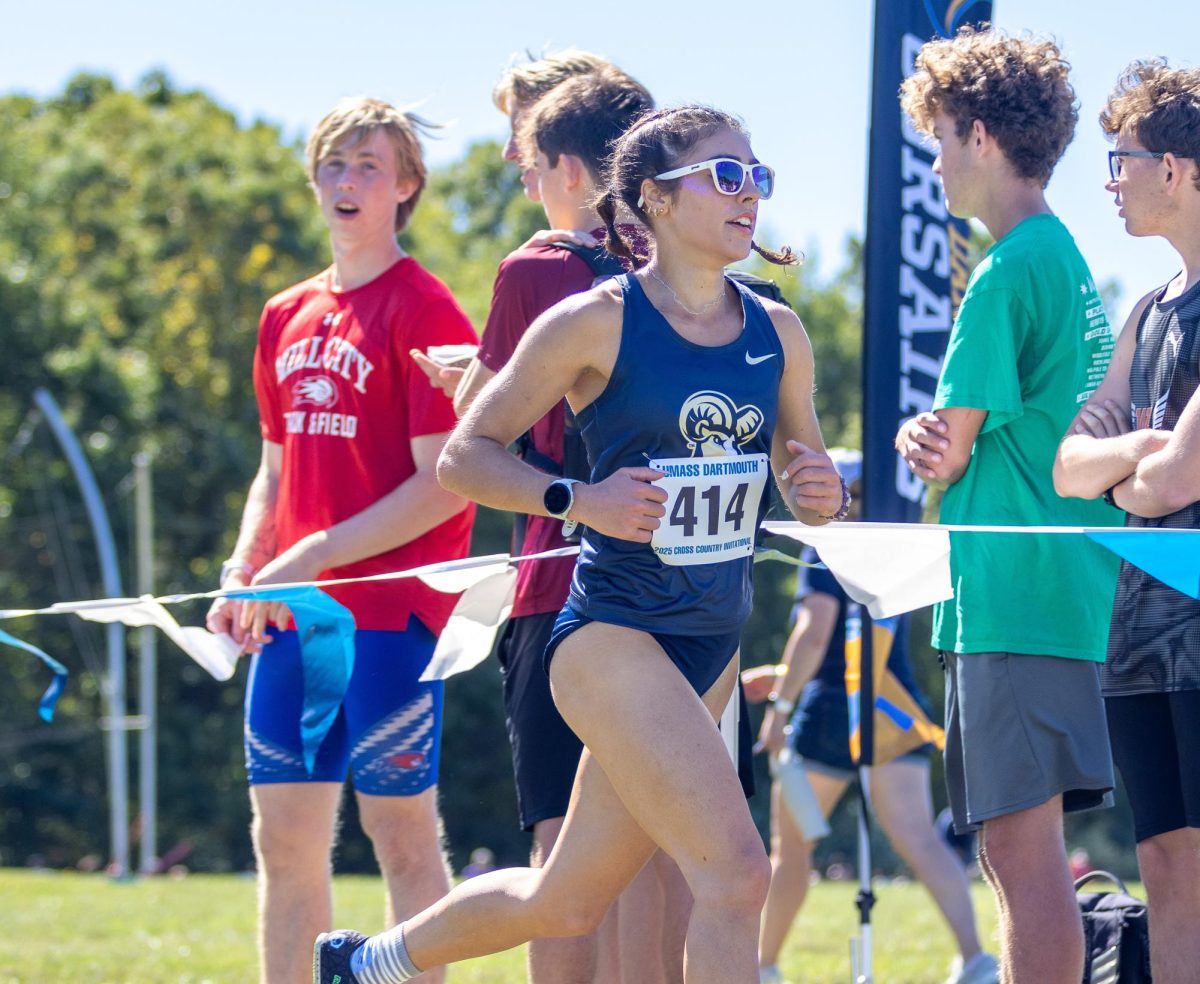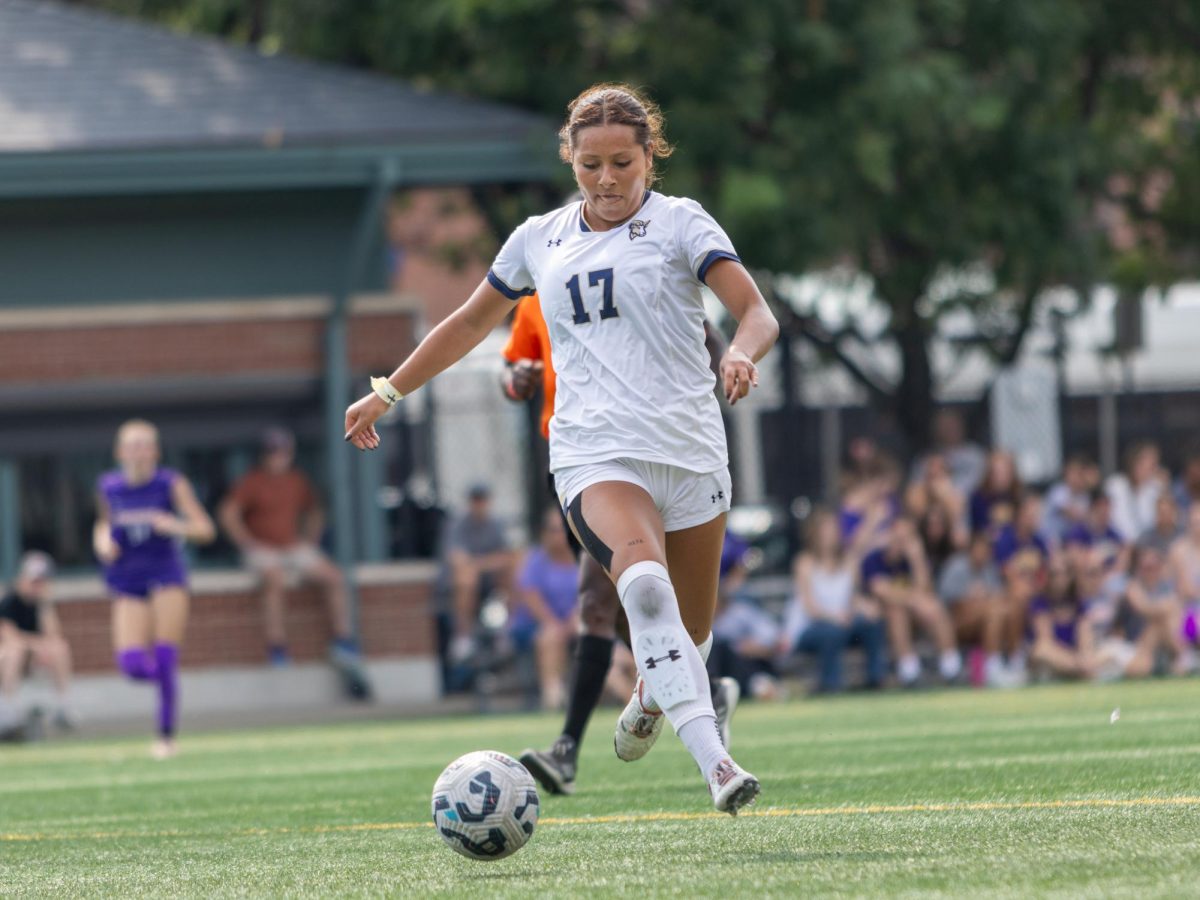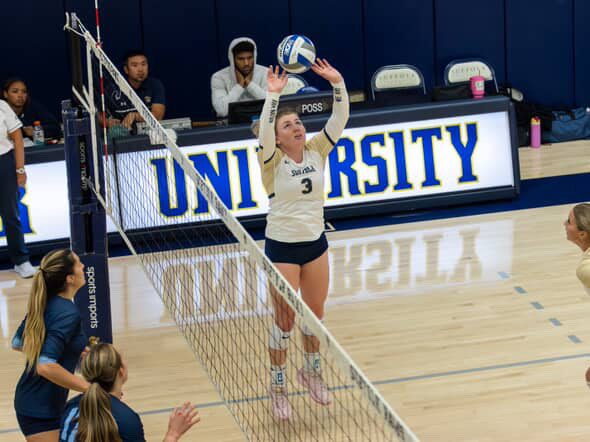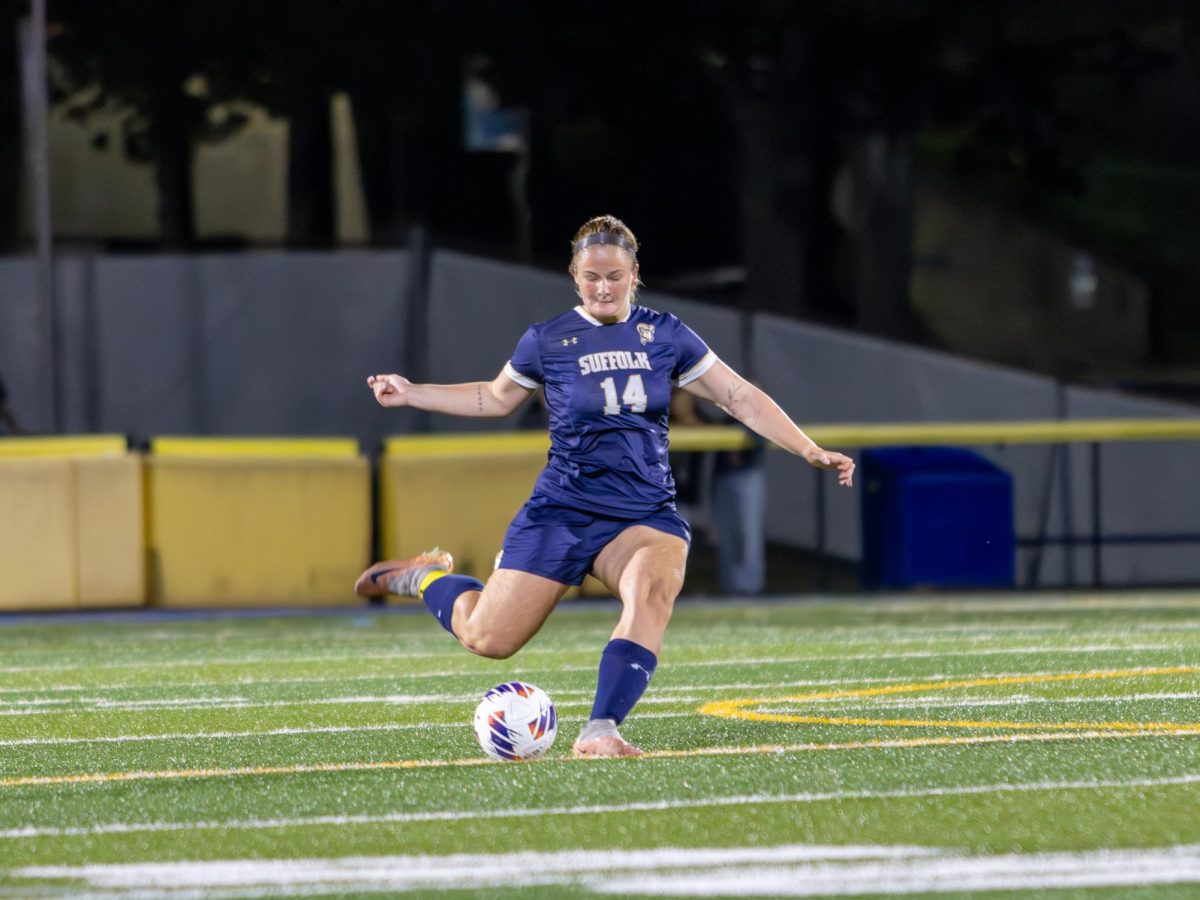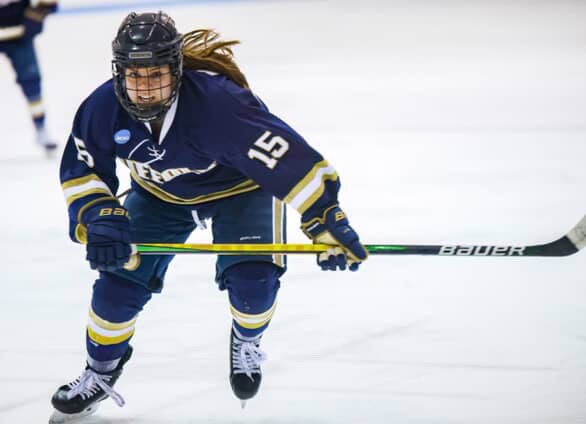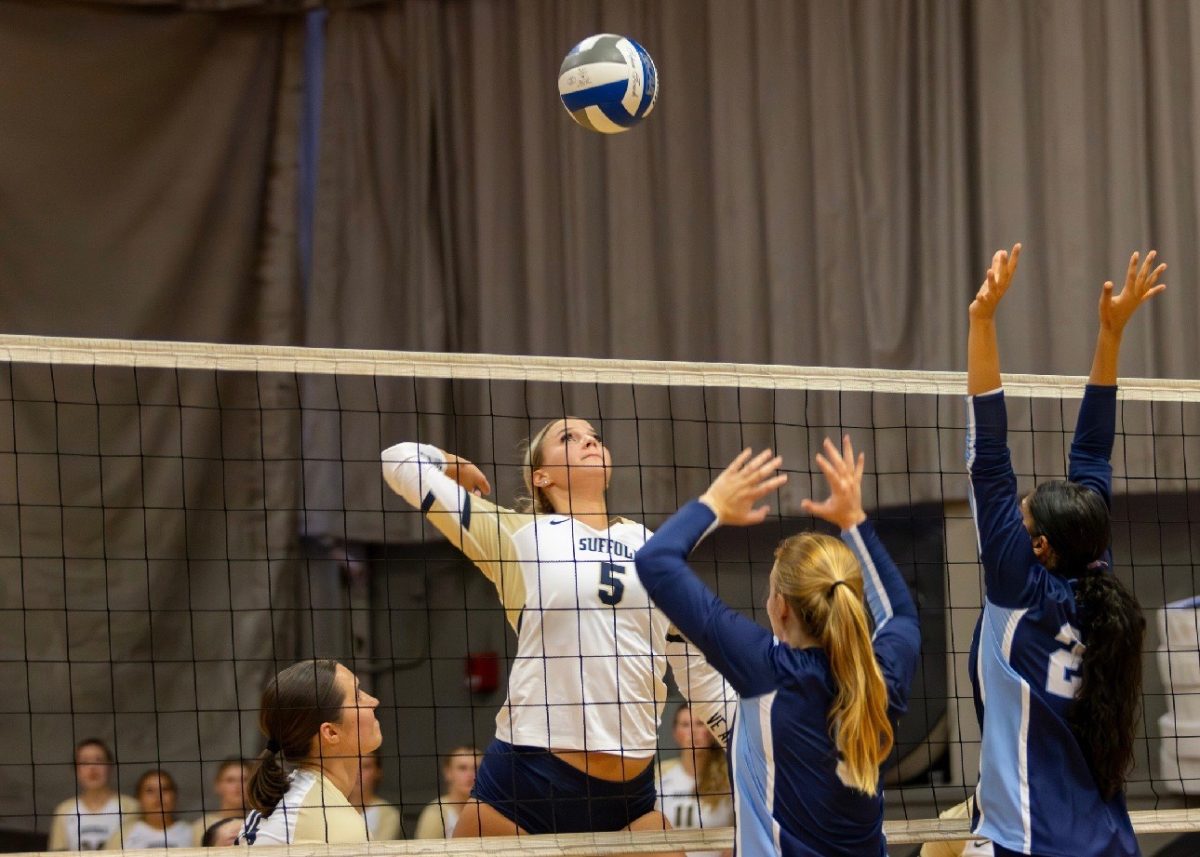“I think this law could change the world of female sports by promoting equal compensation and equal value across sports for both sexes,” said senior cross-country captain Emily Manfra in an interview with The Suffolk Journal.
Since joining the team her freshman year, Manfra has devoted hundreds of hours to training with the Suffolk cross-country team. She has become one of the team’s most decorated athletes, having been undefeated this season and having made it to nationals in all three seasons during the 2018-2019 school year.
Manfra also became an Academic All-American, which she feels is helping her coach with recruiting younger athletes.
“It would be amazing to receive compensation in exchange for competing,” said Manfra. “I have devoted so much time to my sport and even spending my own money to buy equipment needed. Even if running shoes were covered for me that would save me several hundreds of dollars a year.”
Many student-athletes make significant sacrifices in order to play sports. For most athletes, college usually marks the end of an individual’s athletic career, unless they decide to move up to professional sports.
U.S. Women’s Ski Team member Paula Moltzan has practically dedicated her life to becoming an Olympic athlete. Before joining the national team, Moltzan spent time racing while she studied at the University of Vermont (UVM).
Although she won several national titles during her time on the UVM ski team, Moltzan never received compensation from her school.
“As a freshman I won NCAA, which is a national title,” said Moltzan in an interview with The Journal. “I received no benefit or gain, other than my pride. I would say any time I did well in a race or brought a bigger name to the school, I didn’t receive any benefit from it, I do think it’s odd that although I won a national title, all I got out of it was a title.”
Schools are able to benefit off the likeness of athletes in order to get sponsorships for the entire team, but athletes cannot accept any sponsorships on the individual level.
For individual sports like cross country and alpine skiing, this act could make a huge difference by giving athletes the ability to accept individual endorsements – contributing to their personal success.
“There are a lot of college athletes competing at the D-II or D-III level where the same resources aren’t afforded to them in college,” said sophomore cross-country captain Matyas Csiki-Fejer to The Journal. “The shoes I wear are $180 and a lot of runners have multiple pairs of shoes at that cost. If athletes were able to get even small sponsorships, from a local company, that could definitely increase their opportunities in the sport which could lead them to getting more recognition.”
Moltzan also said that skiers usually have to supply all of their own equipment, as opposed to sports like hockey and basketball that can receive team sponsorships.
In individual sports, sponsorships and endorsements could help make life as an athlete affordable and enjoyable for more people.
“If you were allowed to have endorsements, that would help maintain your sponsors through college and you could have contact with them to get the equipment you need for free,” said Moltzan. “You could have the opportunity to get paid and that would give you the equipment you need and give you the money you need to go to bigger races that cost a lot more.”
While the world of professional sports is primarily dominated by men, this new act provides a new level of upward mobility for women after college.
“I think professional sports for women are popular and widely known and followed by their own fans, but in comparison to men’s sports, the gap is huge,” said senior cross- country captain Emma Weisse.
This act could level the playing field by giving the individual athlete the power to market their own brand and benefit off of their own name, image and likeness rather than their school.
“If female athletes have the opportunity to grow their own personal brand at a younger age, that just sets them up to be more popular as their career progresses,” said Weisse.
Female athletes are often overlooked and under-considered when it comes to both college and professional sports, but this law may change that.
“If maybe younger girls can start seeing that women are starting to be paid more and that maybe it’s a better opportunity and that maybe you can actually make a life out of being an athlete, then I think this could really help grow women’s sports,” said Moltzan.
Knowing that there is greater recognition for female athletes in college could help younger athletes to stay motivated and driven in their athletic careers.
“Most female athletic recognition is from Olympic athletes,” said sophomore volleyball player Christina Hickey. “This might push more female athletes to keep going and further their athletic careers, leading to more athletic recognition in general.”
With such a prominent divide between men’s and women’s sports in the professional world, there is also a tremendous gap in pay between male and female athletes.
“It could definitely mean that more people appreciate the effort that female athletes put into the sport – which is equal to what men put into the sport for sure so they deserve equal recognition,” said Csiki-Fejer. “Obviously it’s just sexism that’s in the way of that recognition. Over a long period of time this could maybe help to lessen those biases that people have, that is also important.”
Compensating student athletes for their names, images and likeness at the collegiate level may be a small step in abolishing this severe wage gap.
“People don’t view women’s sports in the same light as men’s which I think is a big problem,” said Suffolk senior soccer captain Christian Restrepo. “The talent level seen in their sports is pretty incredible and I think it deserves to be shown more at a national level.”
“This law could change the world of female sports by promoting equal compensation and equal value across sports for both sexes,” said Manfra. “Every athlete deserves to be compensated for the hard work that they devote to their sports as it reflects and promotes their school as well.”
It is still being determined how this ground-breaking vote by the NCAA will impact the future of Suffolk athletes. One thing is for sure – this will change the world of college sports as we now know.


